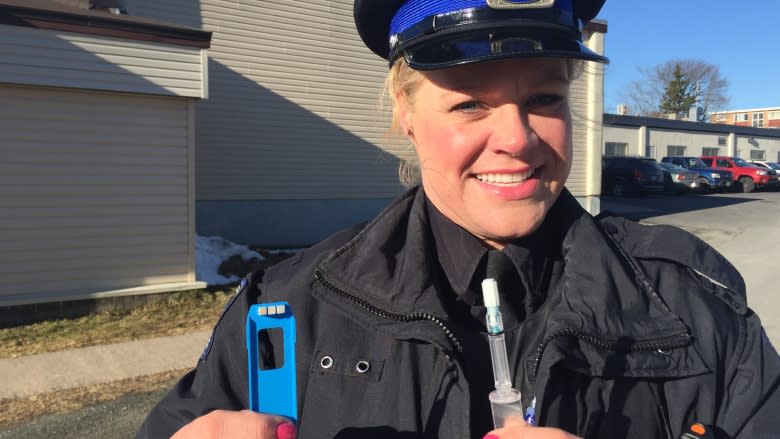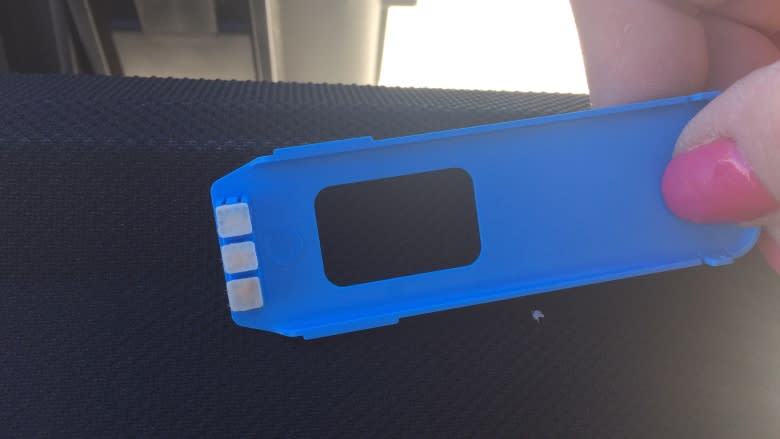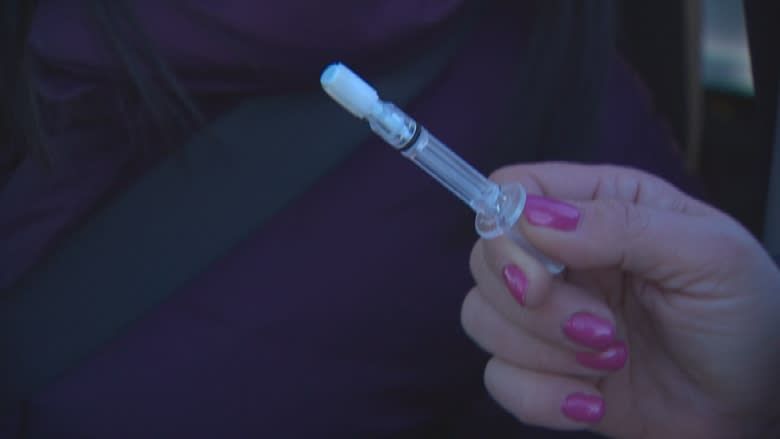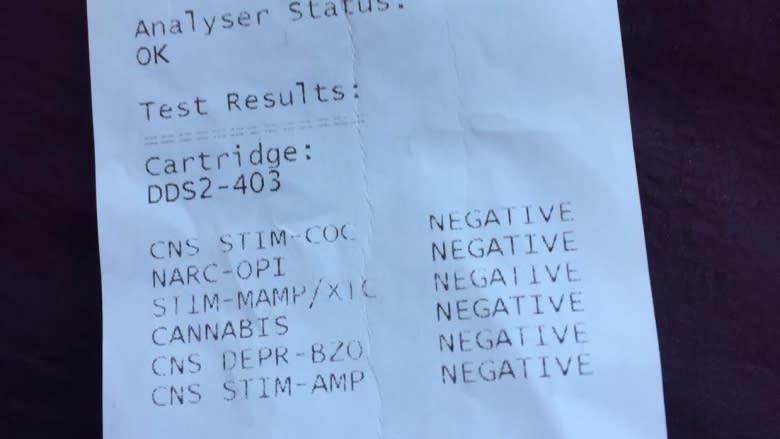Drugalyzers hit the streets of Halifax to test for drugged drivers
Two models of so-called "drugalyzers" that test for drug use among drivers are now being used by Halifax Regional Police in a national pilot project by Public Safety Canada.
The portable devices by Alere and Securetec, which collect and analyze saliva samples for the presence of cocaine, opioids, methamphetamine, MDMA (ecstasy) and cannabis are being tested with the help of volunteer drivers in roadside checks around Halifax.
Three HRP officers have been trained to participate in the pilot. They're trying out the DrugWipe 5 by Securetec, a plastic applicator with three pads that change colour when saturated and requires eight minutes to analyze the sample.
Device indicates presence of drugs in system
The other model, manufactured by Alere, looks like a cotton swab with an indicator that turns blue when enough spit has been collected. Its results are ready in five minutes.
Neither device measures an actual level of impairment. Rather, they indicate whether there's a presence of drugs in the system with either positive or negative reading, said Const. Kristine Fraser, a traffic unit officer who's participating in the pilot.
She said if the device becomes legal for use in Canada, a positive reading would result in a driver being sent to a drug recognition officer for assessment of impairment.
By the end of February, HRP hopes to have tested each device 100 times with comments from officers on how well it worked, particularly at night, and in cold, wintry conditions.
No set level of drug impairment
The federal pilot project comes as the Trudeau government moves ahead on its election promise to legalize recreational marijuana use.
But there are foggy issues. Unlike the blood alcohol level of impairment, which is set at 0.08, there's no established limit for drugged driving.
Nadine Wentzell, a pharmacist, former narcotics inspector with Health Canada, and a consultant to employers on drug use among employees, said Ottawa needs to act soon, especially as legalized marijuana use becomes a reality.
"Someone has to take a stand," said Wentzell, who suggested toxicologists as experts in the field.
"Set a level at or above which we have impairment concern and then go from there. That's the real crux of the problem."
Drugged drivers cause more fatal crashes
MADD Canada has been lobbying for the devices, which are used elsewhere in the world. According to the impaired driving awareness group, drugged drivers caused more deadly crashes than drunk motorists in Nova Scotia in 2012.
There were 92 fatal crashes that year, and among them, 24.1 per cent were caused by victims who tested positive for drugs alone compared to 14.6 per cent for alcohol.
Fraser said the use of cannabis or opioids for medical purposes does not entitle someone to get behind the wheel.
"It's not illegal to have the drugs in your system – it's illegal to be impaired by them," she said.





